What Drinks Are Safe After Wisdom Tooth Removal?
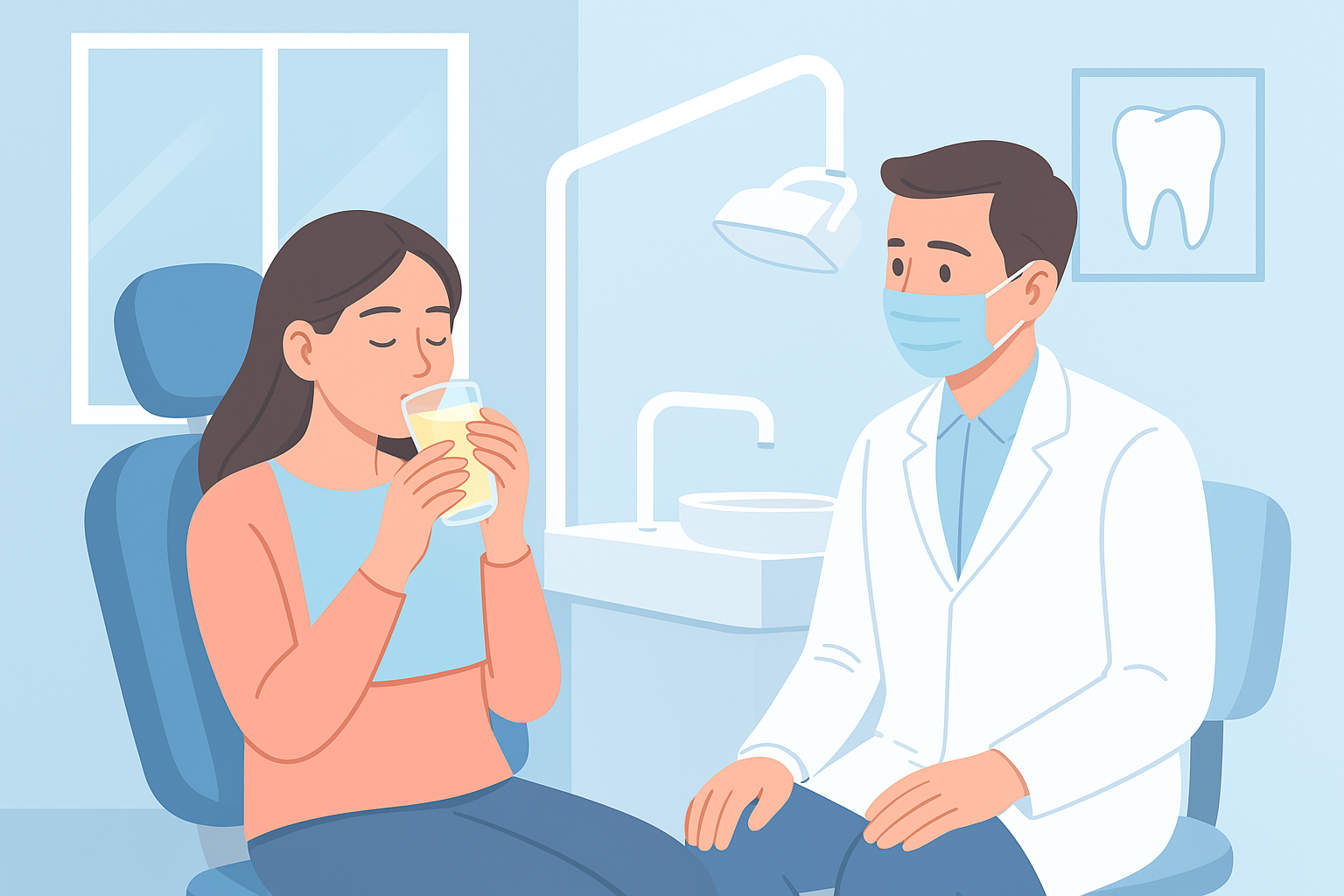
Recovering from wisdom tooth removal can feel like a balancing act — you’re sore, hungry, and thirsty, but you need to be careful about what you consume. While food restrictions are often discussed, what you drink after the procedure can significantly impact your healing process.
Choosing the right beverages after wisdom tooth extraction helps prevent complications like dry socket, infection, or delayed healing. In this guide, we’ll break down which drinks are safe, which ones to avoid, and how to stay properly hydrated while protecting your healing gums.
If you’ve recently had your wisdom teeth removed or are preparing for the procedure, this post will help you confidently navigate your recovery phase — sip by sip.
Understanding the Healing Process After Wisdom Tooth Removal
Before diving into specific drinks, it helps to understand what happens after extraction. When a wisdom tooth is removed, a blood clot forms in the empty socket — this clot protects the underlying bone and nerves as the gum tissue heals.
If this clot becomes dislodged, it can lead to dry socket, a painful condition that delays healing and exposes the jawbone. The right drinks can support clot stability and tissue repair, while the wrong ones can increase irritation or infection risk.
Why Hydration Matters After Oral Surgery
Hydration plays a crucial role in recovery. Fluids help:
- Flush bacteria and debris from the mouth naturally
- Maintain saliva production, which aids healing
- Prevent dehydration, especially if you’re eating less solid food
- Regulate inflammation and support overall tissue repair
But not all fluids are created equal — some drinks soothe, while others can harm sensitive gums or the forming clot.
Safe Drinks After Wisdom Tooth Removal
Let’s go over the safest beverages to enjoy while recovering from surgery.
1. Water – The Best and Safest Choice
Nothing beats plain water when it comes to hydration and healing. It’s gentle, neutral, and essential for recovery.
Tips:
- Drink cool or room-temperature water (avoid hot water)
- Use small sips — no straws
- Keep a water bottle nearby to sip throughout the day
Why It’s Ideal: Water promotes healing without irritating your wounds or introducing sugar and acid.
2. Milk – A Gentle Source of Protein and Calcium
If tolerated, milk is another excellent post-surgery drink. It’s soothing, nutrient-rich, and contains protein and calcium, which support tissue and bone healing.
Tips:
- Choose cold or room-temperature milk
- Avoid mixing milk with sugary syrups or chocolate flavorings
- Don’t drink through a straw
3. Smoothies – Nutritious but Needs Caution
Smoothies are a go-to for post-extraction recovery because they’re packed with vitamins, protein, and antioxidants. They help you maintain energy while your chewing ability is limited.
Tips:
- Use soft fruits like bananas, mangoes, and berries
- Add yogurt or protein powder for extra nutrition
- Avoid seeds (like from strawberries or kiwi) that could irritate your wound
- Always use a spoon, not a straw
Example: A banana-yogurt smoothie or a blended avocado shake makes a great healing drink.
4. Herbal Tea – Soothing and Anti-Inflammatory
Certain herbal teas can reduce inflammation and ease discomfort. Chamomile, ginger, or peppermint tea (cooled down) can be soothing to sore gums.
Tips:
- Let the tea cool completely before drinking
- Avoid caffeine-heavy teas
- Skip added lemon or honey until your gums fully heal
Why It Helps: Herbal teas contain antioxidants and anti-inflammatory compounds that calm swelling and promote comfort.
5. Electrolyte Drinks – Replenish Lost Nutrients
If you’re struggling to eat or feeling lightheaded, electrolyte drinks can help maintain your fluid balance. Opt for low-sugar or natural electrolyte options.
Examples: Coconut water, Pedialyte, or diluted sports drinks (half water, half drink).
Tip: Avoid drinking them cold; lukewarm or room temperature is best for comfort.
Drinks to Avoid After Wisdom Tooth Removal
While the above drinks support healing, some common beverages can delay recovery or cause pain.
1. Avoid Carbonated Drinks (Soda, Sparkling Water)
Carbonation creates pressure in your mouth and can dislodge your healing clot. Additionally, soda is acidic and sugary — both harmful to exposed gums.
Why to Skip: The bubbles can disturb the extraction site and increase infection risk.
2. Skip Hot Beverages (Coffee, Hot Tea, Hot Chocolate)
Hot temperatures can dissolve or loosen your blood clot, slowing the healing process. Even mild heat can cause irritation or bleeding.
3. No Alcohol
Alcohol delays healing, dries out your mouth, and can interfere with prescribed antibiotics or painkillers. Even a small amount can irritate your wound and cause bleeding.
Recommendation: Wait at least a week before having any alcoholic beverage — and confirm with your dentist first.
4. Avoid Fruit Juices and Acidic Drinks
Citrus-based drinks like orange, lemon, or pineapple juice can sting and damage delicate gum tissue. The acid also interferes with healing and increases infection risk.
If you crave something fruity, stick with low-acid smoothies made from bananas, melon, or blueberries instead.
5. Stay Away from Using Straws
This isn’t a drink itself, but it’s important: never use straws for at least a week after surgery. The suction can easily pull out the healing clot and cause dry socket. Always sip slowly from a cup.
How Long Should You Stick to Safe Drinks?
Generally, patients should follow a soft-food and liquid diet for the first 3–5 days after surgery. By the end of the first week, you can slowly reintroduce lukewarm coffee, tea, or blended soups if your healing is on track.
Your oral surgeon or dentist may provide a personalized timeline based on how many teeth were extracted and whether stitches were involved.
Practical Tips for a Smooth Recovery
To make your healing process easier, here are a few additional recommendations:
- Keep your mouth clean. Rinse gently with a saline solution after 24 hours to reduce bacteria.
- Avoid vigorous spitting. It can disturb the clot.
- Use a spoon for thicker drinks. Especially for smoothies or protein shakes.
- Keep hydration consistent. Sip water regularly instead of gulping.
- Rest and elevate your head. This minimizes swelling and bleeding.
If you want more detailed recovery steps, check out Tips for a Smooth Wisdom Tooth Removal Recovery for a day-by-day guide.
When to Contact Your Dentist
If you experience any of the following after surgery, contact your oral surgeon right away:
- Persistent bleeding beyond 24 hours
- Severe pain or throbbing at the extraction site
- Bad taste or odor from the wound
- Fever or swelling that worsens after 3 days
Prompt attention can prevent infection or dry socket complications.
We are dedicated to treating you with the utmost care.
Call us at 305-552-1193
Final Thoughts
Recovering from wisdom tooth removal doesn’t have to be complicated. The right hydration choices can speed up your recovery and prevent painful setbacks. Stick to cool water, milk, mild smoothies, and herbal teas during your first few days — and avoid hot, fizzy, or alcoholic drinks until your gums have healed.
With proper care and patience, you’ll be back to your normal diet (and favorite drinks) in no time.
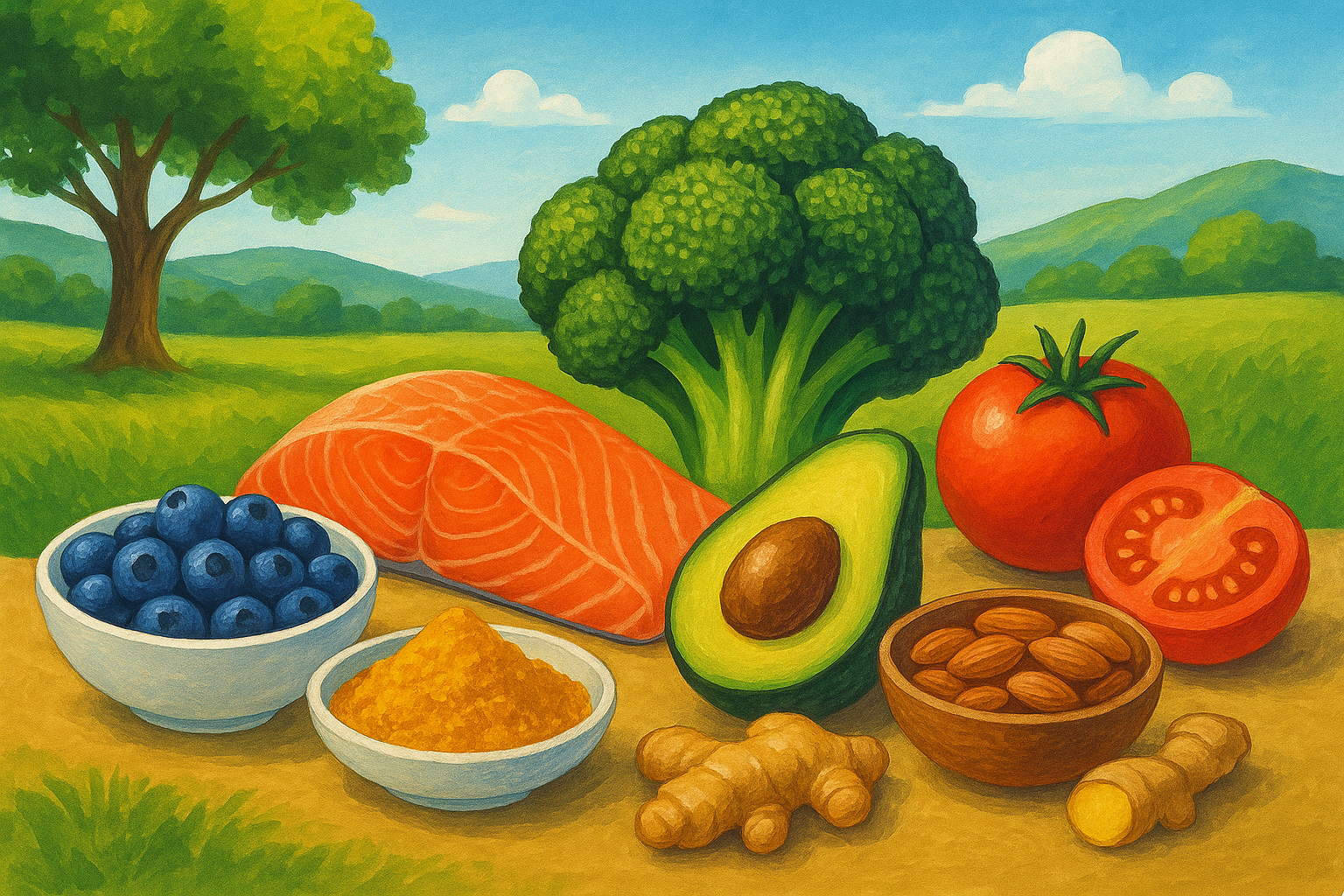
Foods That Help Reduce Inflammation Before Extraction
December 3, 2025
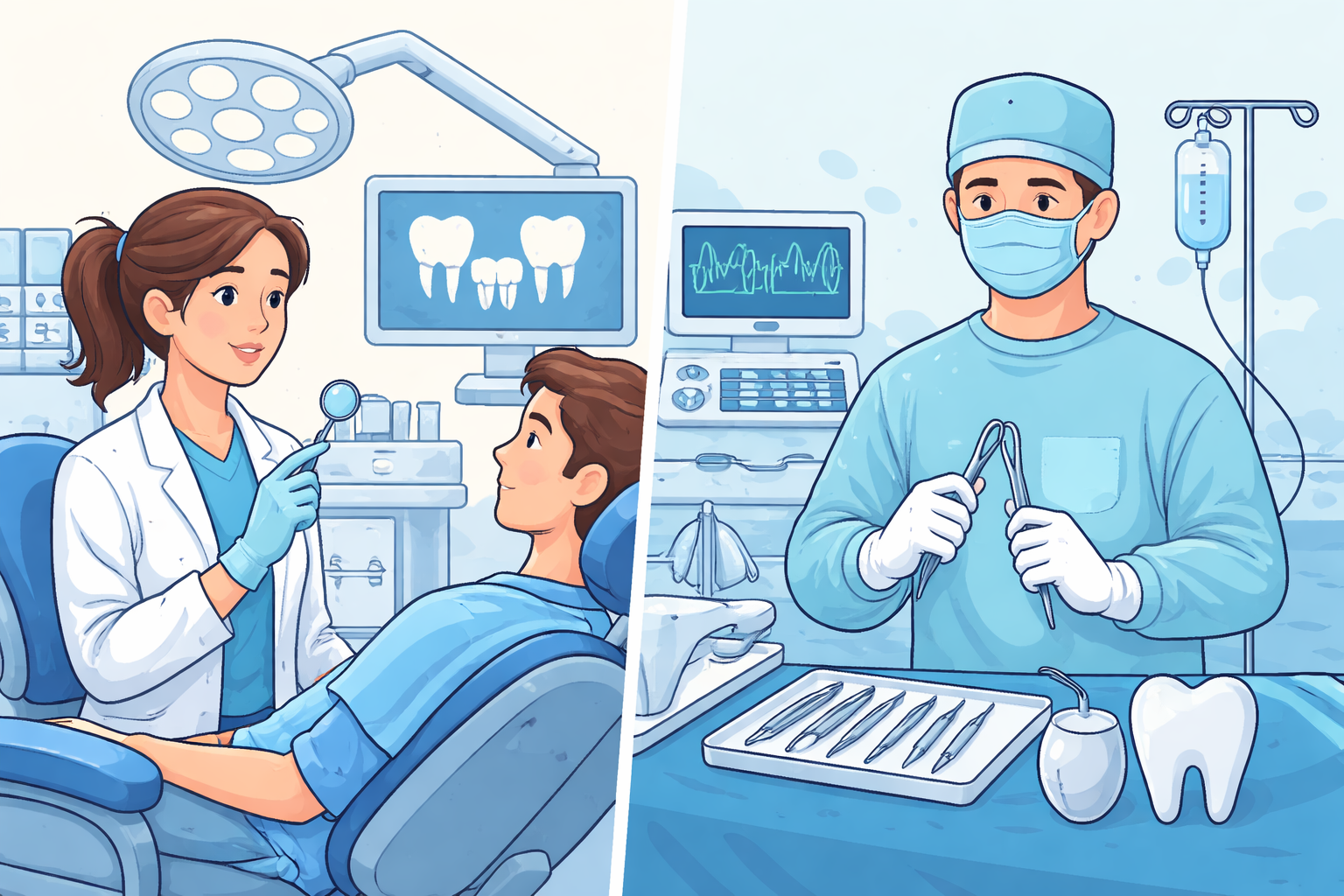
Wisdom Tooth Extraction: Dentist vs. Oral Surgeon
January 30, 2026
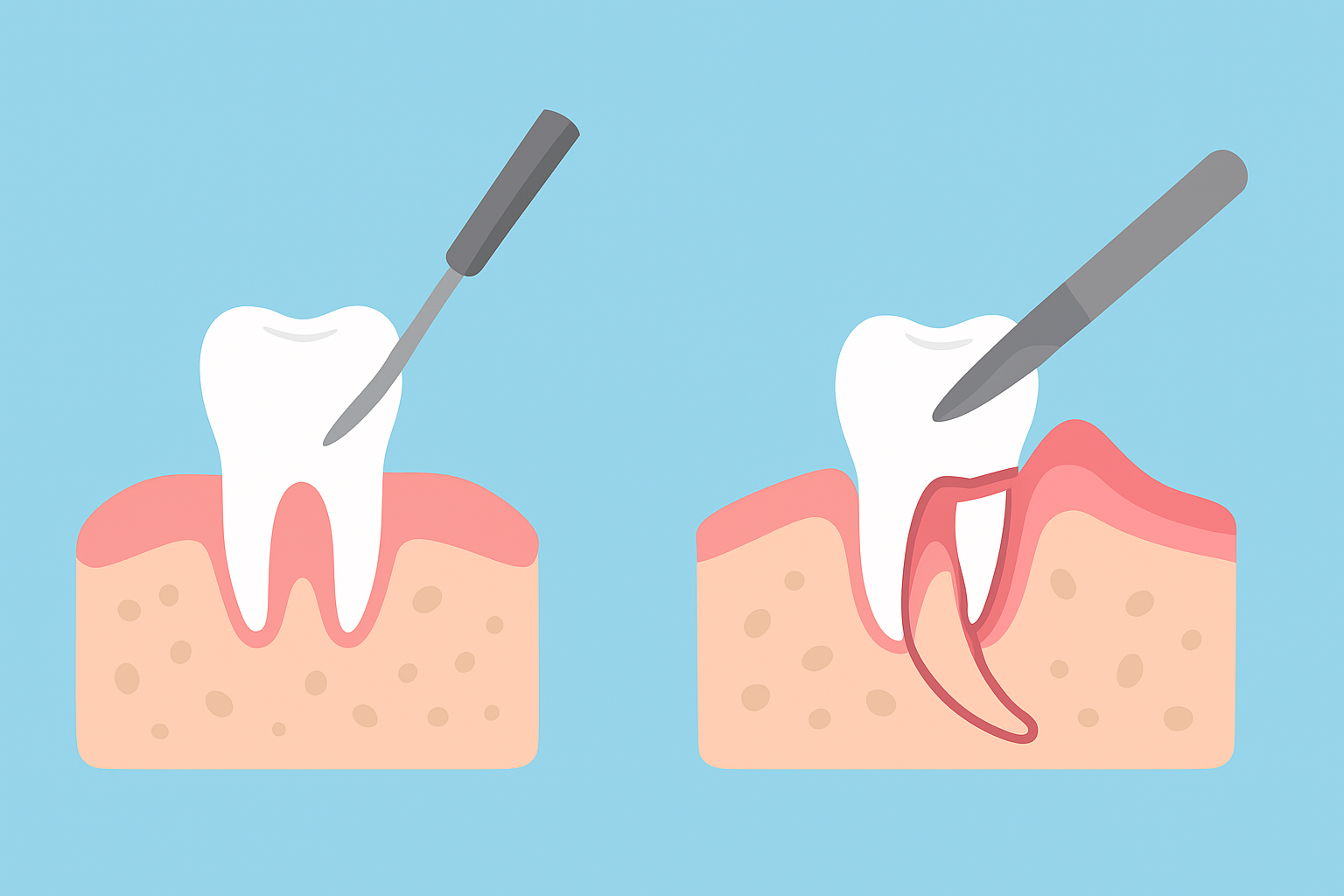
Simple vs. Surgical Extractions: What’s the Real Difference?
November 11, 2025
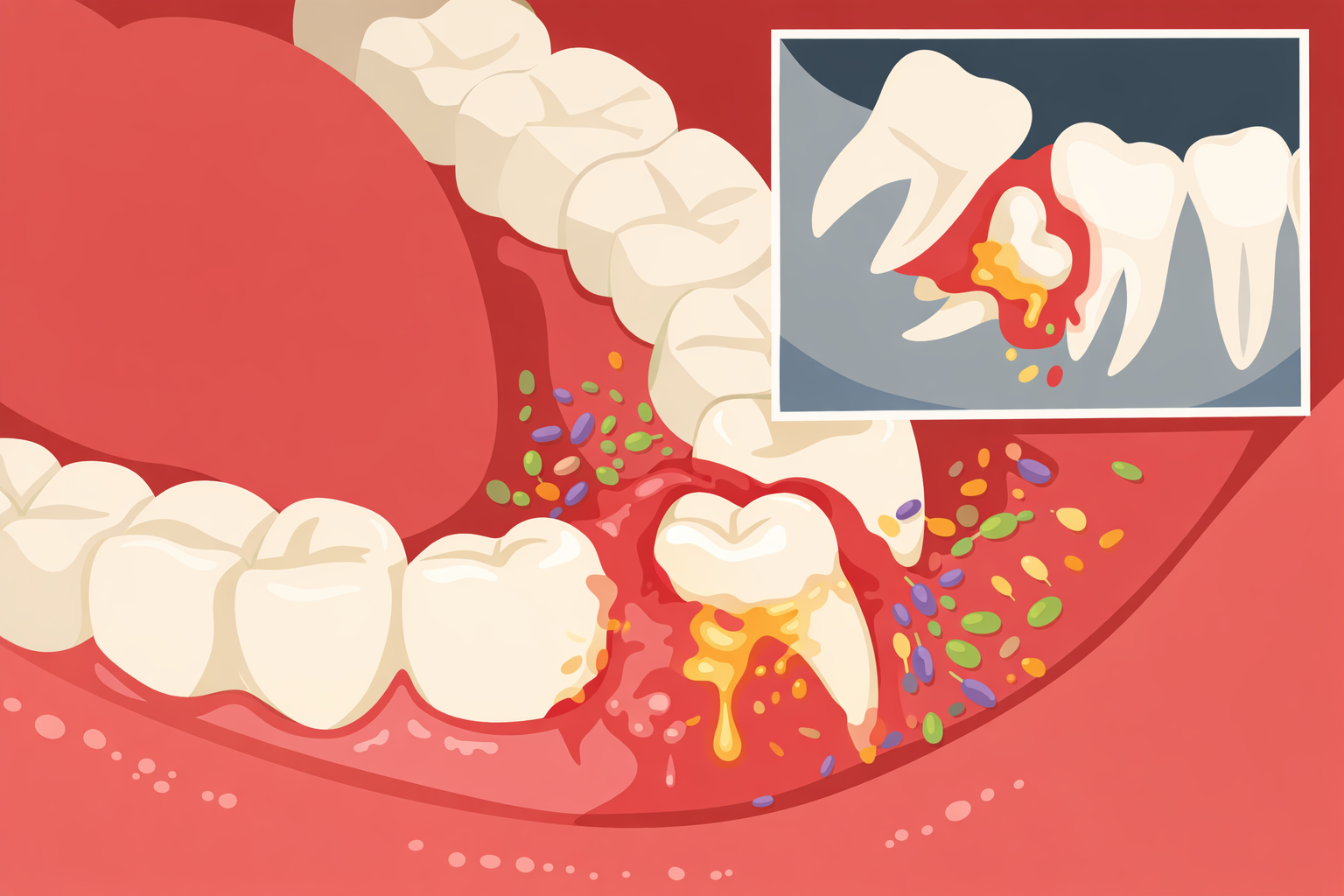
Gum Flap Infection Around Wisdom Teeth: Causes & Care
February 12, 2026

Oral Surgery for Seniors: What to Know Before, During, and After Treatment
January 9, 2026